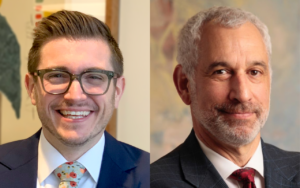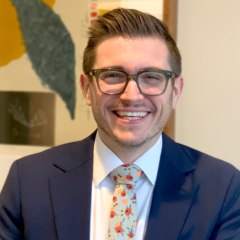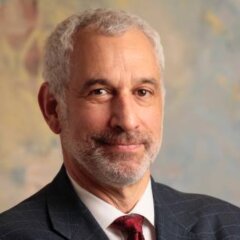 By Anthony J. May and Andrew D. Freeman
By Anthony J. May and Andrew D. Freeman
In a YouTube video published on November 19, 2022, Archbishop William Lori conceded the Archdiocese of Baltimore’s responsibility for decades of horrendous abuse that have plagued Marylanders. Two days earlier, Archbishop Lori released a formal written statement, explaining that he “continue[s] to apologize as long as there are people in pain, and pledge to continue to do everything possible to ensure that no one in the Church’s care is ever again harmed by a representative of the Church.”
Yet actions speak louder than words. In Part I of this series, we discussed recent efforts to pass legislation that would expand access to justice for survivors of child sex abuse. In Part II, on the day that an over 400 page report compiled by the Maryland Attorney’s General’s office detailing decades of abuse cover ups by the Catholic Church is scheduled to be released and mere days after the Maryland General Assembly voted 132-2 to formally expand the ability for survivors to sue institutions that enabled their abusers, we examine the Church’s efforts to undermine that legislation and outline many of the tactics the Church is likely to use to close keep the window of opportunity shut.
Even before the Maryland General Assembly considered the Child Victims Act of 2023, the Church launched a campaign to prevent survivors—and the public at large—from accessing more information about the Church’s complacency with decades of sexual abuse. While the Church initially claimed that it did not oppose the release of the over 400-page investigative report compiled by the Maryland Office of the Attorney General identifying 158 Roman Catholic priests involved in sexual and physical abuse for over 80 years, the Church hired and paid for independent counsel to represent “anonymous individuals” to block the report’s release. And though the Church said that it supported legislation to eliminate the statute of limitation in civil suits, the Church’s position was limited to future cases. This partial concession has been criticized as falling woefully short of achieving the legislation’s intended purpose to rectify decades of abuse.
The Church’s efforts are nothing new and are part of its general opposition to laws that would provide compensation to survivors. The Church’s priority has been to prevent having to pay compensation to survivors abused by clergymen, whose wrongdoing the Church enabled and concealed for decades. More recently, the Church opposed a law that would require clergy members to report sexual abuse. Indeed, it seems determined to block legislation now, preemptively marshalling legal arguments challenging the validity of the law.
First, the Church has suggested that a lookback window is unconstitutional. Similar challenges have been brought in other states, including most recently in California, where the United States Supreme Court declined to consider the issue. The argument is that a lookback window that would allow a claim after the statute of limitations has expired would inflict punishment for past conduct, and the Church has pointed to a Supreme Court decision from 2003 striking down a California law imposing criminal penalties for sex-related child abuse. The critical distinction, however, is that the invalid law imposed criminal, rather than civil, penalties for abusers. Nothing in that holding precludes reviving civil liability for entities like the Church that were either complicit in or aided and abetted such abuse. Courts in other states, such as New Jersey and Maine, have rejected constitutional challenges to similar lookback windows, finding them valid and enforceable.
Second, the Church clings to an obscure and scantly used legal term to protect itself from paying compensation for decades of abuse, claiming that the new proposed legislation would unlawfully revoke a “statute of repose.” Often used in construction law, a statute of repose is a law that bars claims after a certain time period, similar to a statute of limitations, while providing blanket immunity at any time thereafter. The Church’s argument is that a 2017 law passed by the General Assembly purports to prevent lawmakers from extending the statute of limitations again, protecting the Church from civil suits accruing after a victim turns 38-years-old based on a technicality. The Church’s position is specious, given its surreptitious efforts to hide the statute of repose language in the 2017 bill, which the Church snuck in as an amendment without legislators’ knowledge. Whether the Church’s argument is valid remains to be seen, but it is, at the very least, questionable given the Supreme Court of Maryland has previously upheld the rescission of a statute of repose in asbestos claims, a ruling the Church ironically supported.
Third, the Church turns to doomsday tactics, weaponizing potential bankruptcy as a defense. According to BishopAccountability.org, 31 U.S. Catholic diocese and religious orders have filed for bankruptcy protection in the United States, largely due to payouts by the Church to abuse survivors. As of 2018, lawsuits by abuse victims had cost dioceses and religious orders in the U.S. more than $3 billion in damages. That being said, even religious entities that have declared bankruptcy have still been required to compensate victims. For example, the Wilmington Diocese in Delaware paid tens of millions of dollars to victims of abuse after declaring bankruptcy, and the Archdiocese of St. Paul and Minneapolis paid $210 million.
Finally, the Church points to other available criminal sanctions, claiming those laws are sufficient to provide justice. But former Attorney General Frosh explained: “It was mainly in the 80s, 90s and early 2000s where the definitions of sexual abuse were expanded to what we now think of today as sexual abuse and child sexual abuse [and m]any of those are now felonies. But because they were committed before that was the law, it can’t be prosecuted because [of] statute of limitations.”
While there is little doubt that legal challenges are coming to the recently passed law, attorneys at Brown, Goldstein & Levy are poised to vindicate the rights of survivors in court. Current Attorney General Anthony Brown has spoken out about his willingness to defend the law. As a skilled and experienced trial and appellate litigation firm, BGL is similarly prepared to defend the law in the Supreme Court of Maryland and beyond.
At Brown, Goldstein & Levy, we know it is difficult to recall traumatic memories, let alone discuss them. But even if the assault happened many years ago, you may be able to file a lawsuit for compensation now. Our attorneys have experience with difficult sexual assault cases and have won million-dollar and multi-million-dollar verdicts and settlements in favor of survivors. We maintain absolute confidentiality and will only move forward if and when you are ready to do so. To learn more about our practice and how we help share your story and begin to right the decades of abuse you and others have faced, please contact us today for a confidential consultation.
LEARN MORE ABOUT ANDREW FREEMAN
Andy Freeman obtains justice for his clients. A fellow of the prestigious American College of Trial Lawyers, he has won numerous verdicts, judgments, and settlements of millions, tens of millions, and in one case over a billion dollars by mastering the relevant law and getting to know his clients, their problems, and the evidence in their cases. In one case, Andy won a verdict of $15 million for a survivor of child sexual abuse. In another, he won a $1 million verdict on behalf of a girl who was sexually abused by a lawyer (a result recognized by the National Law Journal as one of the “Top Wins of 2000”), and in a third case, he secured a $1 million settlement from an abuser without having to file suit. Andy has long been a tenacious advocate for the wellbeing of children, both inside and outside of court. He has served as a board member and board president of the Family Tree (formerly the Child Abuse Prevention Center of Maryland) and of the Family League of Baltimore City, and as a board member for Safe and Sound: Baltimore’s Campaign for Children, Youth and Families. Andy was also a volunteer with Court Appointed Special Advocates (CASA) of Baltimore, a nonprofit that fights for the best interests of abused and neglected children involved in Baltimore’s foster care system, which awarded him multiple CASA Recognition Awards, and he and his wife (the former Executive Director of the Baltimore Child Abuse Center) were Baltimore City foster parents.
LEARN MORE ABOUT ANTHONY MAY
Anthony May has represented clients in a variety of complex litigation matters including assisting employees with disabilities in obtaining accessible technology and accommodations in the workplace, representing individuals who have been wrongfully convicted, commercial litigation disputes, and fighting workplace discrimination based on sexual orientation. He is a passionate and skillful litigator who tirelessly pursues justice for vulnerable individuals. Recently, Anthony helped obtain a federal district court victory on behalf of a married gay employee who challenged a Catholic employer’s withdrawal of health insurance benefits for his husband as a violation of Title VII of the Civil Rights Act and the Federal Equal Pay Act.

